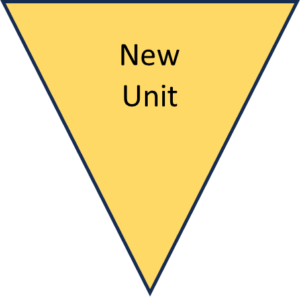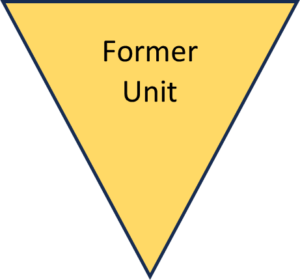Biblical Foundations of Marriage
A wife may say that after her husband became a Christian his behavior has improved. This is because he has experienced God’s love in his life. However, for the marriage to flourish and for both to experience emotional intimacy and well-being, we need to see what the Scripture says about marriage and apply them to our marriage.
Genesis – The First Marriage
Male and Female – Image of God
From the beginning of creation all humans carry inherent honor and worth because they are created by God, “In the image of God he created them, male and female” (Gen. 1:27). They are noble (ashraf-e makhluqat / karam). This is the highest source of value for humans and lays the foundation for healthy marriage relationships.
Both male and female are of equal value and worth. The woman is not of lesser value, of lower intellect, or deficient in any way. It sounds simplistic, but every husband needs to acknowledge that his wife is noble (sharif). He is special and so is she.
The second reality is that God created two genders, male and female. They are not the same. They complement each other in life, and they carry distinct roles from each other depending on culture.
|
Genesis 1:26-31 6 Then God said, “Let us make mankind in our image, in our likeness, so that they may rule over the fish in the sea and the birds in the sky, over the livestock and all the wild animals, and over all the creatures that move along the ground.” 27 So God created mankind in his own image, in the image of God he created them; male and female he created them. 28 God blessed them and said to them, “Be fruitful and increase in number; fill the earth and subdue it. Rule over the fish in the sea and the birds in the sky and over every living creature that moves on the ground.” 29 Then God said, “I give you every seed-bearing plant on the face of the whole earth and every tree that has fruit with seed in it. They will be yours for food. 30 And to all the beasts of the earth and all the birds in the sky and all the creatures that move along the ground—everything that has the breath of life in it—I give every green plant for food.” And it was so. 31 God saw all that he had made, and it was very good. And there was evening, and there was morning—the sixth day.” |
We must stress these two realities, that both male and female carry equal worth and honor, and that their distinctive roles as male and female are both honorable.
**How many genders did God create?
**What is special about each gender?
**How did God bless the man and the woman?
We note that both male and female are called to rule the earth and carry out God’s mandate to build human civilization. “This
|
Genesis 2:18-24 18 The Lord God said, “It is not good for the man to be alone. I will make a helper suitable for him.” ….But for Adam no suitable helper was found. 21 So the Lord God caused the man to fall into a deep sleep; and while he was sleeping, he took one of the man’s ribs and then closed up the place with flesh. 22 Then the Lord God made a woman from the rib he had taken out of the man, and he brought her to the man. 23 The man said, “This is now bone of my bones and flesh of my flesh; she shall be called ‘woman,’ for she was taken out of man.” 24 That is why a man leaves his father and mother and is united to his wife, and they become one flesh. 25 Adam and his wife were both naked, and they felt no shame.” |
wonderful gift of creating human life is something we can only carry out together. Neither sex has all the characteristics necessary – only in complementary union can we do it.” (Keller, 194).
A Suitable Helper
God said that Adam needed a “suitable helper.” The word for helper is often used for God, who helps humans! Adam needs a helper, to come alongside him. They complement each other – each makes up for and completes the other.
The Persian term for a spouse, ham-sar (literally, co-head), is a lovely term for the marriage relationship. Can a husband see his wife as his ham-sar, as his life partner? She is not a possession in his hands to give honor to him and to provide him with sons. Rather she is his ham-sar, ham-sharik (co-partner), a ham-dam (confidant) and ham-rah (fellow-traveler), together on the road of life. Conversely, the wife needs to see her husband as her ham-sar.
The husband is her companion, and she is his.
As companion, the husband blesses his wife to be the woman she is meant to be. Instead of expecting only to be served, he will serve as well. He will request as well as give. He will encourage. Every husband is committed to protecting and providing for his wife. As companions, they treasure and care for each other, as partners in life.
Similarly, the wife serves her husband as her partner. In serving him, she builds up his honor. Instead of complaining, she seeks to please him. Besides requesting, she listens as well. She delights to respect her life companion, rather than nagging him for what she wants. She publicly and privately esteems her husband and boasts about him to her friends and to their children.
In this relationship, the two become suitable and complementary companions to each other, partners in life, serving one another, and sharing the challenges and blessings together.
**Explain the concept “suitable helper”
**Write a love poem for your spouse
A New Unit – Leaving
After the story of Eve’s creation, we have the conclusion in Genesis 2:24 which is probably the best and most concise description of marriage, “A man shall leave his father and his mother and hold fast to his wife, and they shall become one flesh.” This text gives three specific steps for marriage.
-
- The man leaves his father and mother.
- The man holds fast (cleaves) to his wife.
- The two become one flesh.
Notice who leaves their home in this text. In traditional patriarchal cultures, when a man and woman get married, the woman leaves her family and joins the husband’s family. For this reason, in some cultures, a woman must not smile at her wedding celebration. It would be  considered a shame. In 20th century Western weddings, the bride is given away. However, according to the Genesis text, the husband must leave! This issue is not whether he leaves his parents’ house and moves to another location. The issue is that, when married, the husband’s loyalty and devotion must move to his wife.
considered a shame. In 20th century Western weddings, the bride is given away. However, according to the Genesis text, the husband must leave! This issue is not whether he leaves his parents’ house and moves to another location. The issue is that, when married, the husband’s loyalty and devotion must move to his wife.
Here is an awkward question to consider: Who should a man love more: his mother or his wife? The answer to this question is often one of the reasons for marriage conflicts. The mother sees the new bride as a rival to her son’s loyalty to herself, and so she treats the bride with jealousy and hostility. And because the son is committed to his mother, he finds it difficult to support his bride.
The tension creates a split between love and sexual intimacy. He is emotionally intimate with his mother, and physically intimate with his bride. The bride has come between, creating a tension between he and his mother. This makes true physical intimacy with his wife difficult.
This Genesis text assumes (infers) that at marriage, the groom changes his focus of relationships. Before marriage, the groom’s main focus was on his parents’ family unit. At marriage, this changes. A new family is created, and it becomes the primary focus for both the groom and bride. Of course, the groom continues to highly respect his parents, but his first attention is to his wife.
A New Unit – Cleaving
In many cases a family just does not have the financial means to begin a new home. And though, he cannot physically leave his family of origin, he must learn to emotionally leave his family and take the second step – to cleave to his wife. The marriage can only become a genuine union of joy when the husband cleaves to h is wife. In this way, the two blend into one.
To cleave or to hold fast means to be devoted, loyal, and committed to a person. This cleaving is the practical outworking of a marriage covenant rather than merely a marriage contract (aqd), which is still common in many cultures. Such a contract includes an economical agreement (mahr – bridal money), an agreed-upon amount of money which becomes the security for the bride because the husband is not free to leave her. He remains financially bound to his bride. This can turn into bondage.
In the covenantal commitment, the husband and wife make a commitment to each other alone. In this mutual devotion, neither wonders away from the other. He (and she) will not have other loyalties or other lovers. For the husband, that includes his mother. He and she can cling to only one woman or one man.
This cleaving must begin with a public event, in other words, the wedding ceremony. The two make their marriage vows in the presence of their families and in the presence of God.
A New Unit – One Flesh
In this covenantal commitment, the husband and wife develop a deep intimate relationship. “The two shall become one flesh.” Here is the answer to the longing for intimacy and companionship. When the husband and wife become one flesh, it is a sexual union (physical intimacy), but much more. These two individuals unite emotionally, mentally, and spiritually with each other.
In this commitment of devotion to one another and multi-faceted intimacy, fear and suspicion are gone. Marriage becomes a most beautiful and trusting relationship, which God intended from the beginning.
**What are the three steps for a family unit?
| __________________________
_________________________ __________________________ |
**Why did Adam and his wife feel no shame?
|
Genesis 3:7-15 7 Then the eyes of both of them were opened, and they realized they were naked; so they sewed fig leaves together and made coverings for themselves. 8 Then the man and his wife heard the sound of the Lord God as he was walking in the garden in the cool of the day, and they hid from the Lord God among the trees of the garden. 9 But the Lord God called to the man, “Where are you?” 10 He answered, “I heard you in the garden, and I was afraid because I was naked; so I hid.” 11 And he said, “Who told you that you were naked? Have you eaten from the tree that I commanded you not to eat from?” 12 The man said, “The woman you put here with me—she gave me some fruit from the tree, and I ate it.” 13 Then the Lord God said to the woman, “What is this you have done?” The woman said, “The serpent deceived me, and I ate.” 14 So the Lord God said to the serpent, “Because you have done this, “Cursed are you above all livestock and all wild animals! You will crawl on your belly and you will eat dust all the days of your life. 15 And I will put enmity between you and the woman, and between your offspring and hers; |
Broken Relationships
In the tragic story of Eve’s being deceived and Adam’s disobedience to God, the relationship between them and God is broken. But just as tragically their relationship with each other as husband and wife is broken as well. They play the blame game. Adam blames Eve for his sin, and Eve blames the serpent for her sin. They are ashamed before God and before each other. Eve experiences terrible physical pain in childbirth. She desperately wants to relate to Adam,[1] but he will dominate her instead.
We see that marriage problems begin as soon as sin enters the world and the beginning of male-dominant spirit.
**After they sinned, why were Adam and Eve ashamed before God and before each other?
|
Matthew 19:3-9 3 Some Pharisees came to him to test him. They asked, “Is it lawful for a man to divorce his wife for any and every reason?” 4 “Haven’t you read,” he replied, “that at the beginning the Creator ‘made them male and female,’ 5 and said, ‘For this reason a man will leave his father and mother and be united to his wife, and the two will become one flesh’? 6 So they are no longer two, but one flesh. Therefore, what God has joined together, let no one separate.” 7 “Why then,” they asked, “did Moses command that a man give his wife a certificate of divorce and send her away?” 8 Jesus replied, “Moses permitted you to divorce your wives because your hearts were hard. But it was not this way from the beginning. 9 I tell you that anyone who divorces his wife, except for sexual immorality, and marries another woman commits adultery.” |
Jesus – Permanence of Marriage (Mt 19:1-9)
In a discussion on divorce with the Pharisees, Jesus quotes this verse and adds, “What God has joined together, let man not separate.” Christian teaching forbids divorce except in cases of adultery, because in divorce the husband or wife are not simply breaking a contract, but a divine covenant with each other.
**What text from the Genesis does Jesus quote?
**What does Jesus say about marriage?
Paul – Husband and Wife (Eph 5:21-32)
This text from Ephesians 5 is the clearest passage in Scripture about Christian family relationships. The apostle Paul teaches that the husband-wife union is an illustration of the relationship between Jesus Christ and the church. That is an amazing truth! Christian marriage should be a picture or reflection of how Christ relates to the church and how the church relates to Christ.
Christ to the Church
This passage clearly says, “Husband, love your wife the way Jesus loved the church!” It is important that we see how Christ loves the church, because Christ is the example of how the husband should relate to his wife.
What does Christ do? He is the Head of the church. He loves the church! He sacrificed Himself for the church. He desires to make her holy and clean. He wants to make her radiant and beautiful. Wow – this is what Christ does for the church. This is the way the husband should relate to his wife? Should the husband die for his wife?
|
Ephesians 5:21-32 21 Submit to one another out of reverence for Christ. 22 Wives, submit yourselves to your own husbands as you do to the Lord. 23 For the husband is the head of the wife as Christ is the head of the church, his body, of which he is the Savior. 24 Now as the church submits to Christ, so also wives should submit to their husbands in everything. 25 Husbands, love your wives, just as Christ loved the church and gave himself up for her 26 to make her holy, cleansing[b] her by the washing with water through the word, 27 and to present her to himself as a radiant church, without stain or wrinkle or any other blemish, but holy and blameless. 28 In this same way, husbands ought to love their wives as their own bodies. He who loves his wife loves himself. 29 After all, no one ever hated their own body, but they feed and care for their body, just as Christ does the church— 30 for we are members of his body. 31 “For this reason a man will leave his father and mother and be united to his wife, and the two will become one flesh.” 32 This is a profound mystery—but I am talking about Christ and the church. 33 However, each one of you also must love his wife as he loves himself, and the wife must respect her husband. |
It is easy to say, “Of course, I love my wife!” But do you love your wife the way Christ loves the church? It does not mean that the husband must now be crucified like Jesus was.
It means the following: As the head of the household, he should take responsibility, protect, and provide for the home. This is the husband’s role. But more than that, he should readily sacrifice his rights for his wife. He should want the best for her.
Paul states that no normal person mistreats his own body. In the marriage union, the two become one flesh (body). So if the husband mistreats his wife or hits her, he is mistreating and hitting himself. He must cherish his wife as his very own and care for her, just as he cares for himself.
In short, the husband must be a jawanmard for his wife, ready, willing, and happy to give up his own rights for the good of his wife. As Christ used His authority and power to serve the church, the husband becomes a servant-leader in the home. He uses his power to serve his wife, not to please himself. A selfish husband and leader is NOT a Christ-like husband.
** Describe Christ’s relationship to the church.
** How should the husband relate to his wife?
** In what ways should a husband be a jawanmard?
The Church to Christ
And how does the church relate to Christ as the head?
The church submits to and obeys Jesus. This text teaches that the wife needs to submit to her husband, to allow her husband to be the leader. In traditional, patriarchal societies, this seems the norm, but in the Western world it is no longer acceptable. How does this teaching relate in an egalitarian society?
We need to keep in mind that to submit does not mean to cower to the husband. It does not mean that the wife is afraid to ask questions, that she simply should shut up and put up with things.
Just as the church submits to and embraces Christ, the wife joyfully submits to and embraces her Christ-like husband and honors him. When the husband relates to his wife like a real jawanmard and sacrificially leads the home as he should, she will gladly respect him and trust him. And the husband will work hard to serve his wife so that she can develop and grow further.
** Describe the Church’s relationship to Christ.
** How should the wife relate to her husband?
Marriage Vows
For the Groom
Will you ___________ take this woman ___________to be your lawfully-wedded wife, to live with her in holy marriage based on God’s laws? Will you love her, comfort her, honor, and keep her in sickness and in health, and forsaking all others, be faithful to her as long as you both shall live?
Yes, I ___________ take you, ____________ to be my lawfully-wedded wife, to live with you in holy marriage based on God’s laws. I will love you, comfort you, honor, and keep you in sickness and in health, and forsaking all others, be faithful to you as long as we both shall live.
For the Bride
Will you ___________ take this man _____________ to be your lawfully-wedded husband, to live with him in holy marriage based on God’s laws? Will you love him, comfort him, honor, and keep him in sickness and in health, and forsaking all others, be faithful to him as long as you both shall live?
Yes, I ___________ take you _____________ to be my lawfully-wedded husband, to live with you in holy marriage based on God’s laws. I will love you, comfort you, honor, and keep you in sickness and in health, and forsaking all others, be faithful to you as long as we both shall live.
[1] There are two basic ways to interpret the difficult original Hebrew phrase in Gen. 3:16, “Eve’s desire for her husband.” One interpretation says that Eve will want to relate emotionally with her husband, but her husband will simply rule her. The second interpretation says that Eve will want to control her husband, but her husband will dominate her instead.


